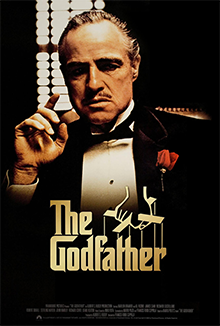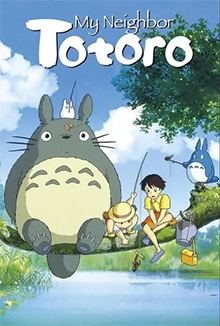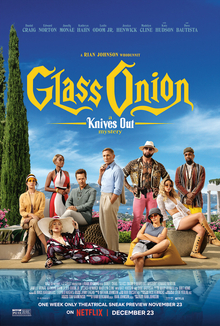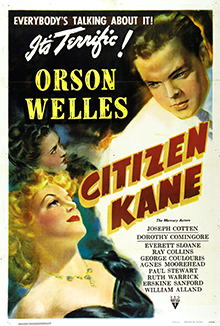The Best Films I Watched in 2022
View the rest of my favorites here.
Can I disclaim something real quick? I’m not a movie guy. Sometimes I think I’d like to be, but, historically, I haven’t been. I spent most of my childhood destroying my attention span with video games, and it was only recently that I started making an effort to reclaim it. I say all this because I’m worried you’re going to find the ensuing list pretentious. It reads like the list of someone who wants you to know he’s into critically-acclaimed films. But you’ve got to start somewhere, right? In 2021, I watched six movies total; the “films” page of my media log didn’t even have any proper formatting. This year, I tripled that. Chalk it up to advanced anxiety. Anyway.
THE GODFATHER

You see what I’m getting at here? I’m starting with The Godfather. Any film reviewer worth a damn watched The Godfather way before 2022. Not me, though. At just under three hours runtime, it’s a veritable beast of a film, but one that’s more than worth it if for no other reason than enabling the understanding of references to it in subsequent cinematic masterpieces like Rugrats in Paris.
MY NEIGHBOR TOTORO

It took me time to get into Studio Ghibli. After a month-long exploration of anime in April, my partner and I christened the following month “Mayazaki” and pledged ourselves to the digestion of as much Ghibli as possible. That we only made it through six cuts to the core of my dedication to film.
Totoro stands, beside many of its Studio Ghibli kin, in stark contrast to the western storytelling canon. There’s no central bad guy in this movie. There’s no visceral conflict. Neither of its protagonists, sisters Mei and Satsuki, even pick up a single gun and/or rocket launcher. And yet, My Neighbor Totoro is engaging and lovely throughout. Some writers credit its depiction of pastoral Japanese life with instilling in them the desire to live out their own rural adventures. I wouldn’t go that far. The girls’ father is still able to reliably take a bus into the city. When American public transit systems are robust enough to do the same (circa 2250) maybe we’ll reconsider. Until then, I’m satisfied with living vicariously through Miyazaki’s magical, mythologized, and regularly awe-evoking masterpieces, so long as I can keep myself from spending half the runtime trying to understand the inner workings of hand-drawn animation.
GLASS ONION

Mystery sequels are financial assets and narrative risks. I assume. I’m not a movie guy. I suppose that’s true for sequels in general. Knives Out was an excellent mystery movie. Its characters were dynamic, its setting rich, its satire cutting. The decision to follow it up with a sequel couldn’t have been easier. But it’s easy for a passion well-planned passion project to turn into an easy-money franchise.
From the beginning, Glass Onion proves it has a different, just as potent story to tell. I found it personally refreshing that this is one of the first pieces of media I’ve watched that acknowledges the multi-year pandemic experience we all went through, opening with a bathtub Zoom game of Among Us between Blanc, Stephen Sondheim, Angela Lansbury, Natasha Lyonne, and Kareem Abdul Jabar.
From that start, Knives Out 2 is off. Blanc’s next case starts with a necessary fresh slate, introducing us to characters every bit as wealthy and awful as their predecessors but altogether new and interesting. The link between them this time is much less obvious; the first movie gave us the family ties right off the bat. This time, we’re left trying to figure out why the Governor of Connecticut has anything to do with Dave Bautista’s Bro Rogan character.
The story that follows is layered, perhaps more opaquely than its titular glass onion. One of the troubles of writing a mystery sequel is covering your own tracks, trying to keep the audience from preempting the path of your writing just as much as you’re trying to hinder them from prematurely unraveling the mystery itself. At least, I imagine it would be. I’ve never written a mystery movie. But if my screenwriting experience is any indicator, I’m right on the money.
I want to write more. I want to analyze and investigate and tell you how I really feel. But this isn’t a review, and I’ve already spoiled the Among Us beat. Glass Onion was very good. And it’s free on Netflix, which means you can catch it in between episodes of Fuck Island and Don’t Fuck Island.
RAISIN D’OR: CITIZEN KANE

This is the Citizen Kane of movies. A monumental triumph of punching-up completed at the height of the Hearstian yellow journalism era, director Orson Welles’s brazen attack on one of the most powerful and influential men of his time is as impressive now as it was then. Welles’s assault on the name of William Randolph Hearst went far from unanswered; despite his best efforts to keep the film’s plot and allusions under wraps for as long as he could, word eventually leaked that Citizen Kane was a critical allegory about the ultra-wealthy newspaper magnate. Hearst’s fury was considerable, his retribution extreme. Citizen Kane was banned from theaters owned by or under the influence of Hearst. Writers working for his papers went beyond critique of the film and libeled Welles personally. One story alleges that a Hearst-employed journalist arranged to hide a fourteen-year-old girl in a closet in the director’s hotel room in an attempt to ruin him in the press. In an attempt to depict the extreme wealth and power of the man, Welles turned the weight of it all upon himself.
Of course, this is a list of films I enjoyed this year, not of the stories behind them. Even absent the real William Randolph Hearst, Citizen Kane is a masterpiece of early cinema. The film’s exploration of wealth and happiness is excellently-plotted, its beauty coming in no small part from our sympathy with its anti-hero. Despite Welles’s opinions, Charles Foster Kane is not depicted as an evil man. He is, instead, a man corrupted by circumstance and the omnipresent glow of the American Dream. The film reads, thus, not as a polemic, but instead as the obituary of a life that could have been better lived had this boy not been removed from his happier origins. Citizen Kane tells the story of an extraordinary man who, through extraordinary events, attained extraordinary means. But ultimately, Kane’s tragedy is ordinary in that he spends his whole life desperately seeking a feeling that will elude him until he gives up its pursuit.
I assumed the hype for Citizen Kane was overblown. I think we all do. But I really enjoyed this film.
Honorable Mentions
- Robin Robin
- The Silence of the Lambs